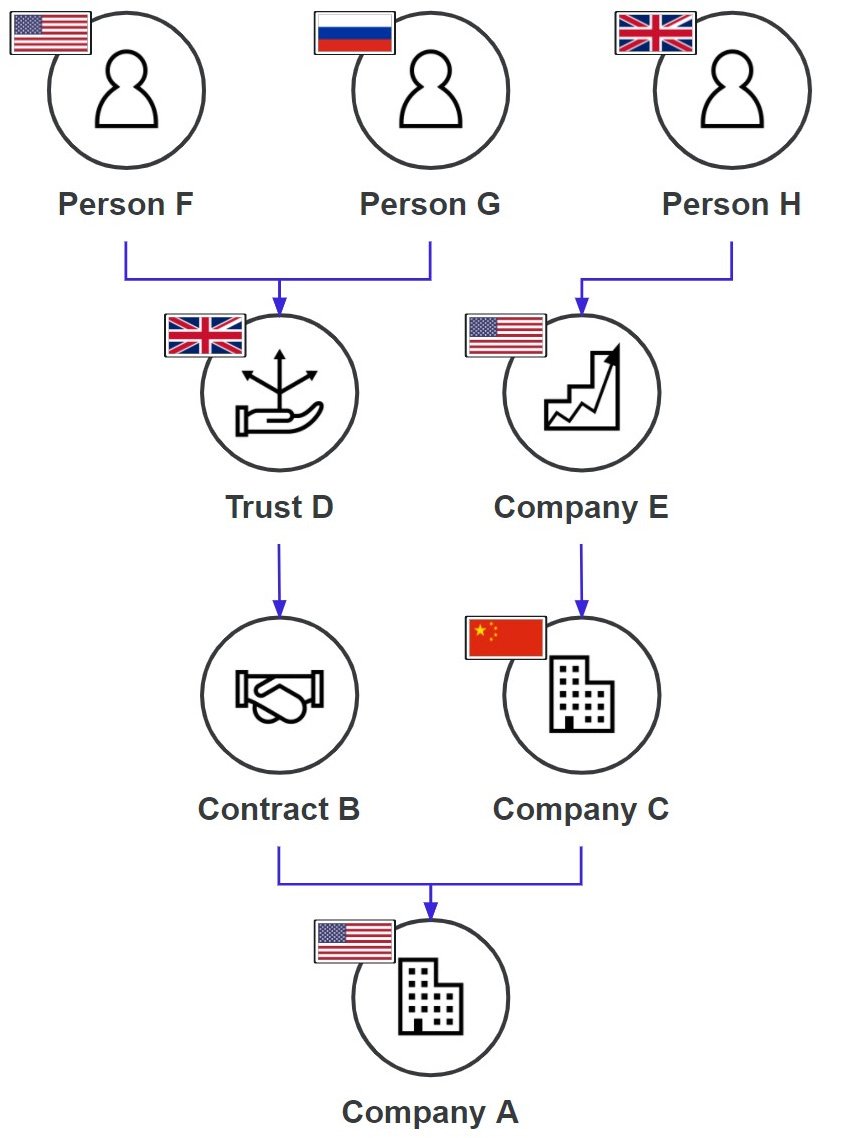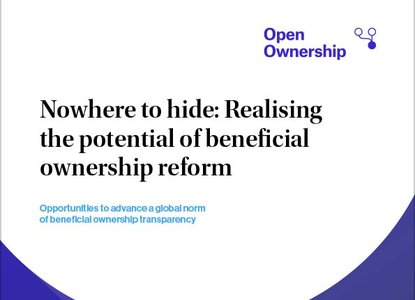Nowhere to hide: Realising the potential of beneficial ownership reform
Here at Open Ownership we see significant opportunities to advance a global norm of beneficial ownership transparency over the coming year. Louise Russell-Prywata tells us why…
First off, a little recap on what beneficial ownership actually means:
A ‘beneficial owner’ is a legal term used to describe the real, human owners of companies. Often, the ownership structure of companies can be complex and opaque.
Companies can be owned by other companies or trusts, as shown in the diagram below. This means that society can’t always see who controls and benefits from a company’s operations and profits.

Beneficial ownership transparency requires companies to disclose information about their real, human, owners to a government-run register. This information can then be used - by governments, companies and the public - to detect and investigate corruption and help businesses manage risk.
This information is widely recognised as essential for tackling corruption, preventing and investigating tax evasion, and creating sustainable trading environments. The next five years are critical to delivering impact on these agendas.
2022: A year of action
President Biden’s ‘Summit for Democracy 2022 Year of Action’, coinciding with the Financial Action Task Force(FATF) review of its beneficial ownership requirements, creates a unique opportunity to drive global progress.
The end goal - shared by many governments, businesses, and citizens - is that people can access accurate and high-quality information on the true owners of companies, and effectively use this to reduce known risks, such as corruption and tax evasion, and create a more sustainable business environment.
To reach this goal, collective action across three key areas is required from the global community of beneficial ownership reformers:
- Effective and context-sensitive implementation of beneficial ownership commitments is needed to deliver an ecosystem of high-quality data across a critical mass of countries.
- Robust new evidence is needed to advance debates on issues such as balancing privacy and public access, and the verification of data held in beneficial ownership registers.
- The use of data needs to be scaled up to realise the potential of beneficial ownership reforms as a cornerstone of 21st century governance.
Open Ownership’s paper “Nowhere to hide: Realising the potential of beneficial ownership reform” outlines specific recommendations that stakeholders across all sectors should take during 2022 to make the most of this opportunity to drive global reform.
Conclusion
The vision is simple: that there is nowhere to hide. Beneficial ownership transparency is a crucial component to effectively tackle corruption. It helps prevent and investigate tax evasion, protects national security, and creates sustainable trading environments.
In the coming years, countries around the world will continue to face and adapt to economic, social, and environmental pressures; the urgency to systemically tackle the use of anonymously-owned companies has never been greater.
The next five years are critical to delivering impact. With strategic and international collective action, we can realise a future where anonymous companies have no place in society, and every country and citizen will benefit.
You can read our recommendations for governments, companies, multilateral institutions, donor agencies and more in Open Ownership’s paper “Nowhere to hide: Realising the potential of beneficial ownership reform”.
Read the full report
Publication type
Blog post
